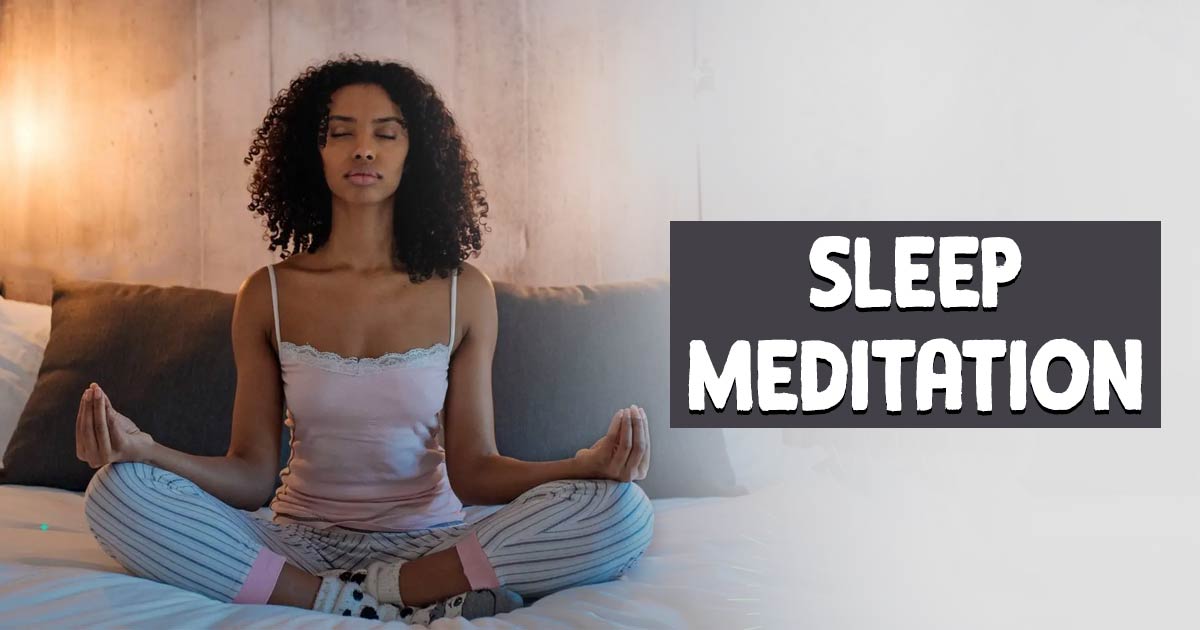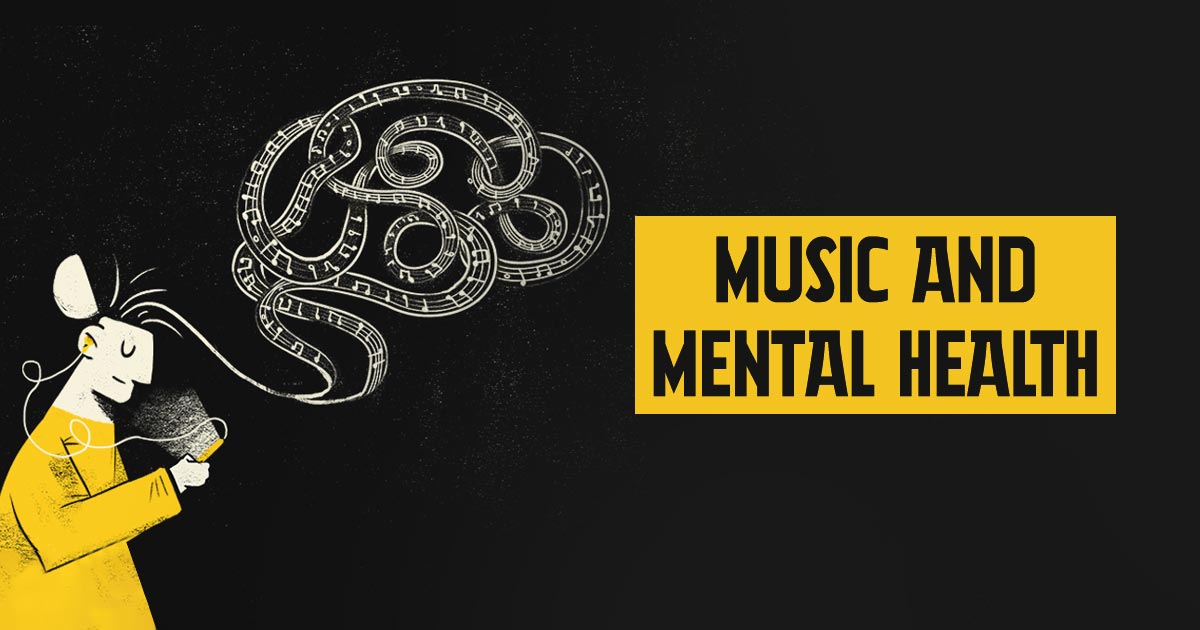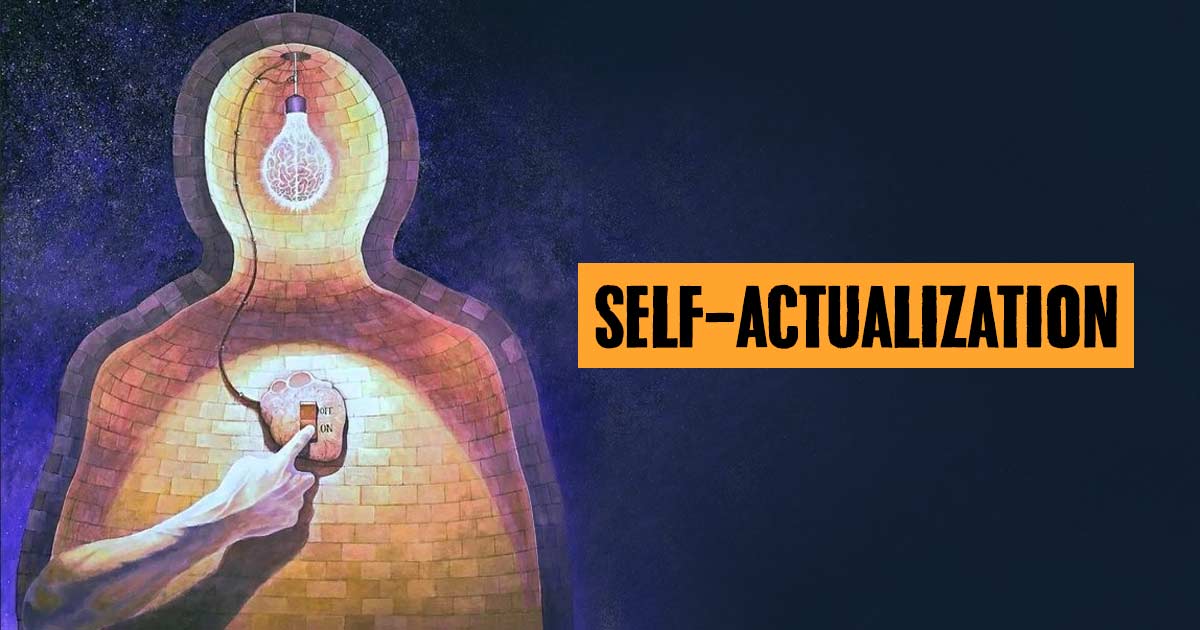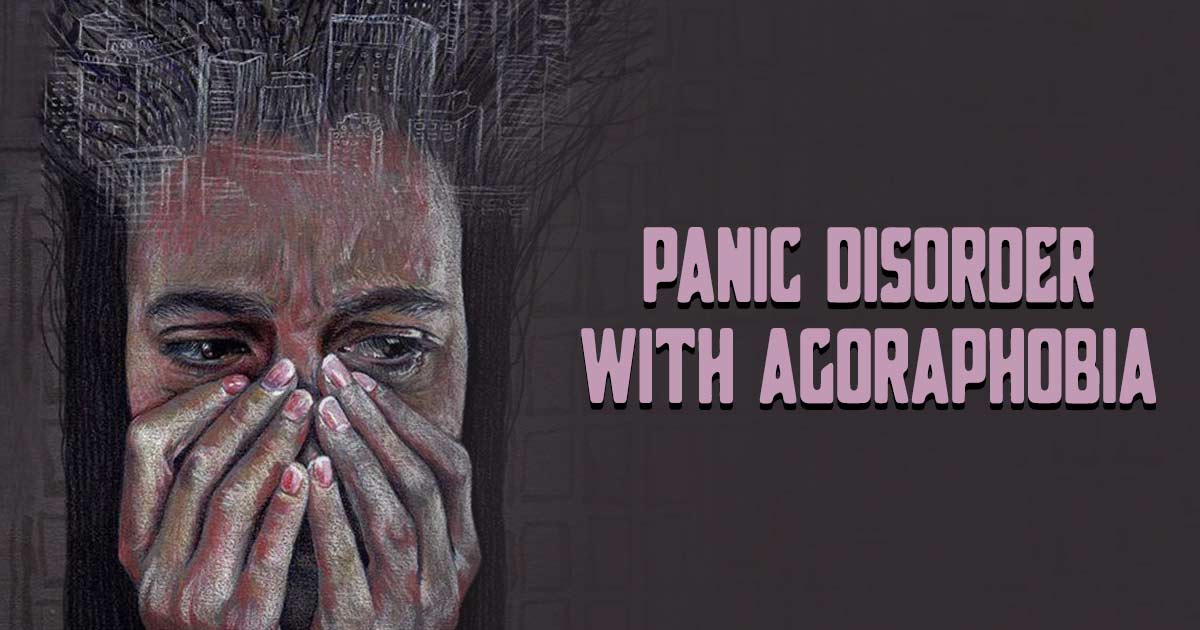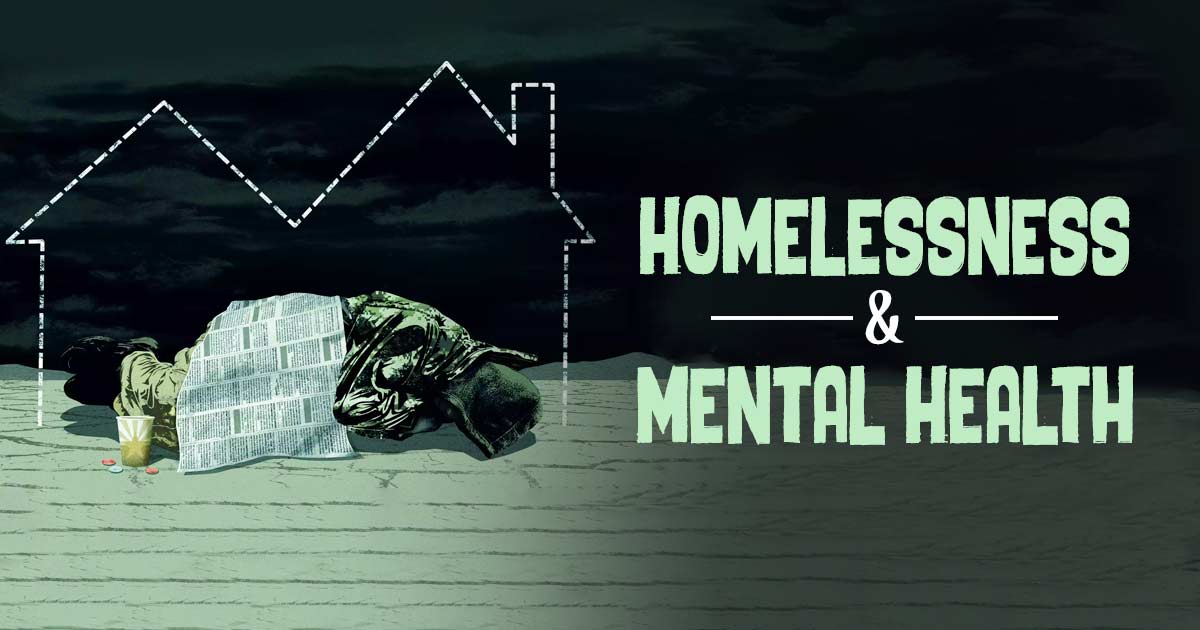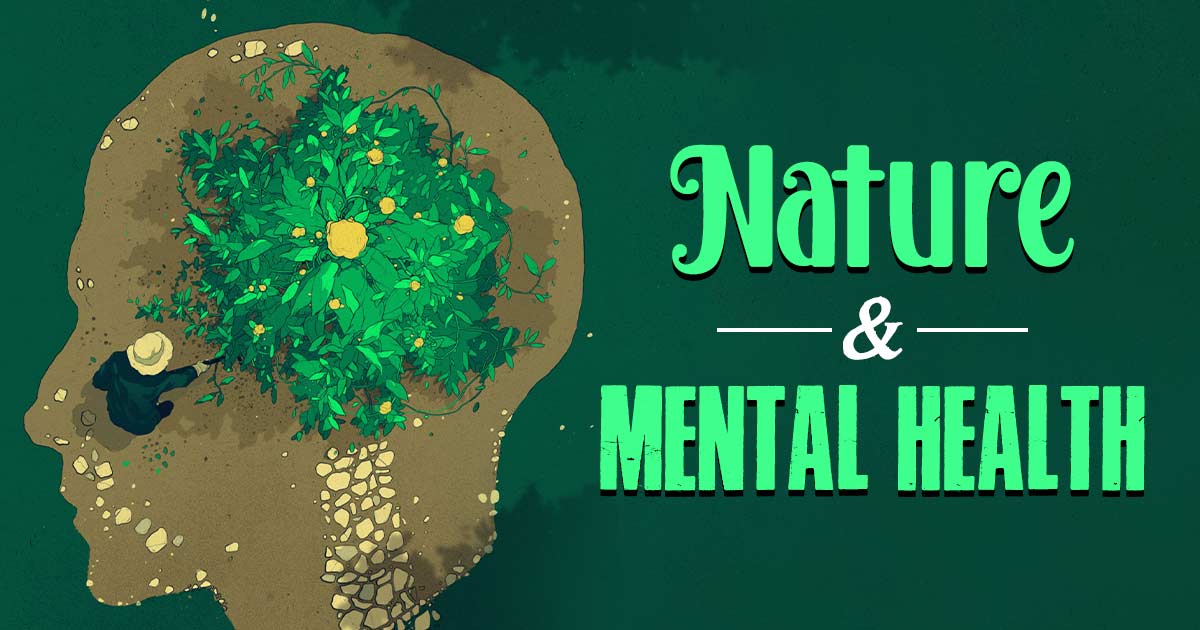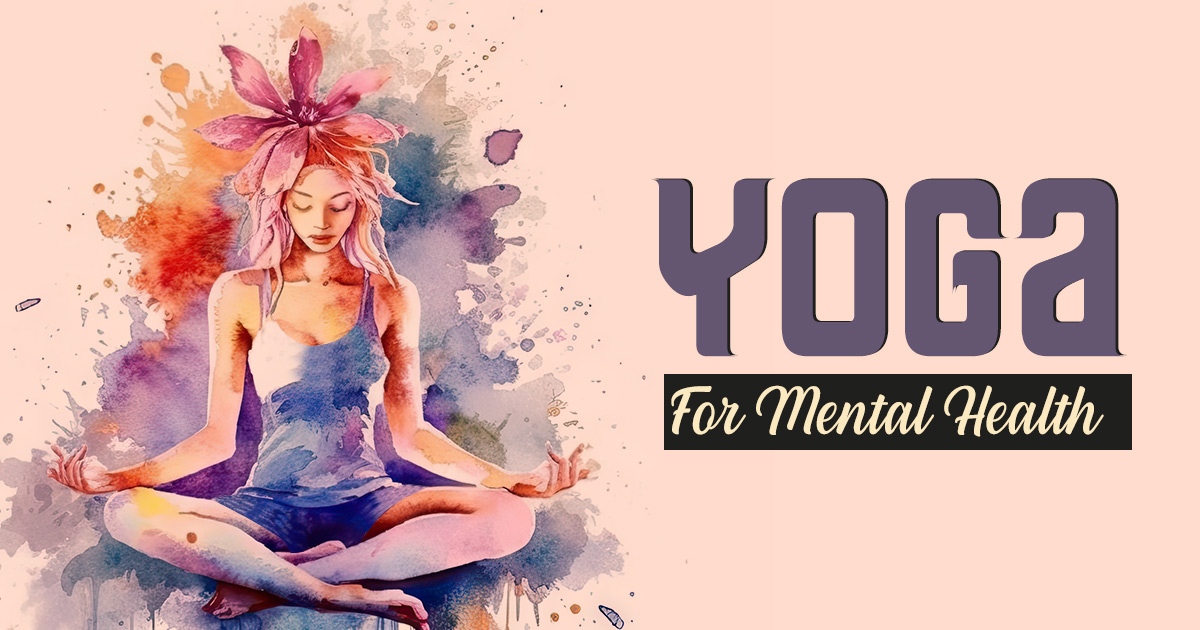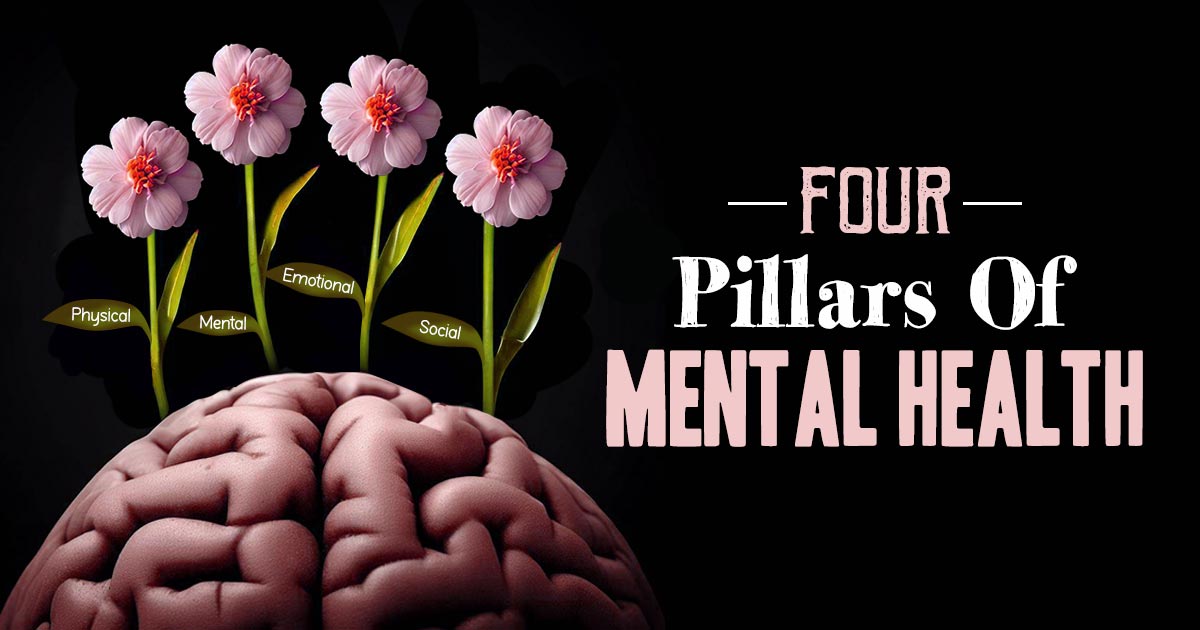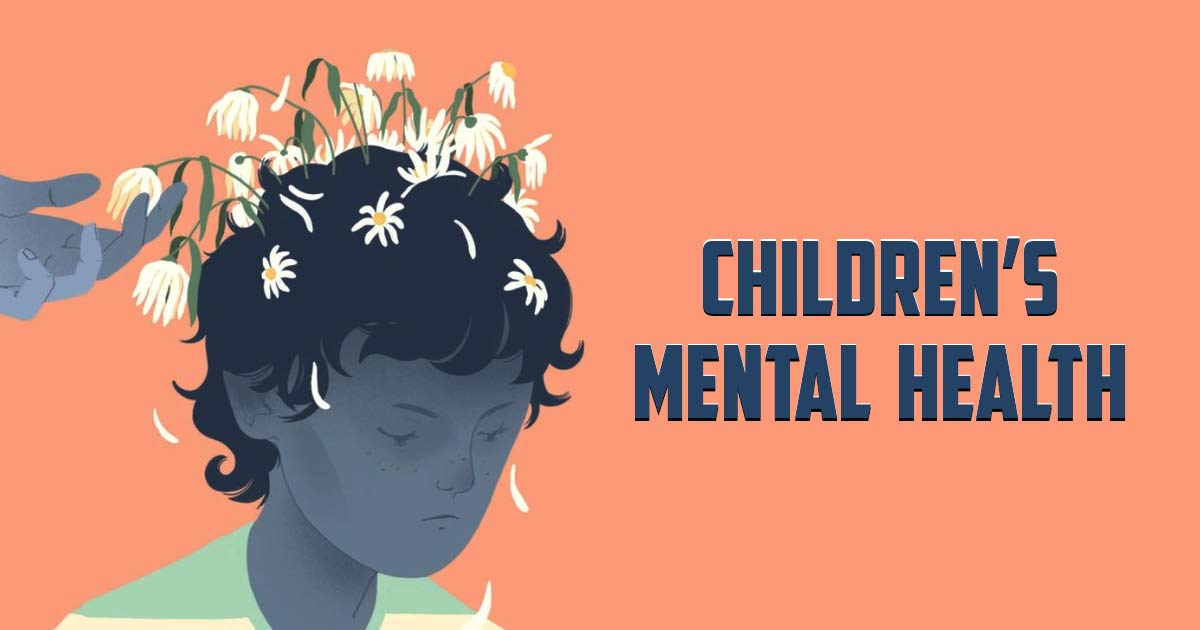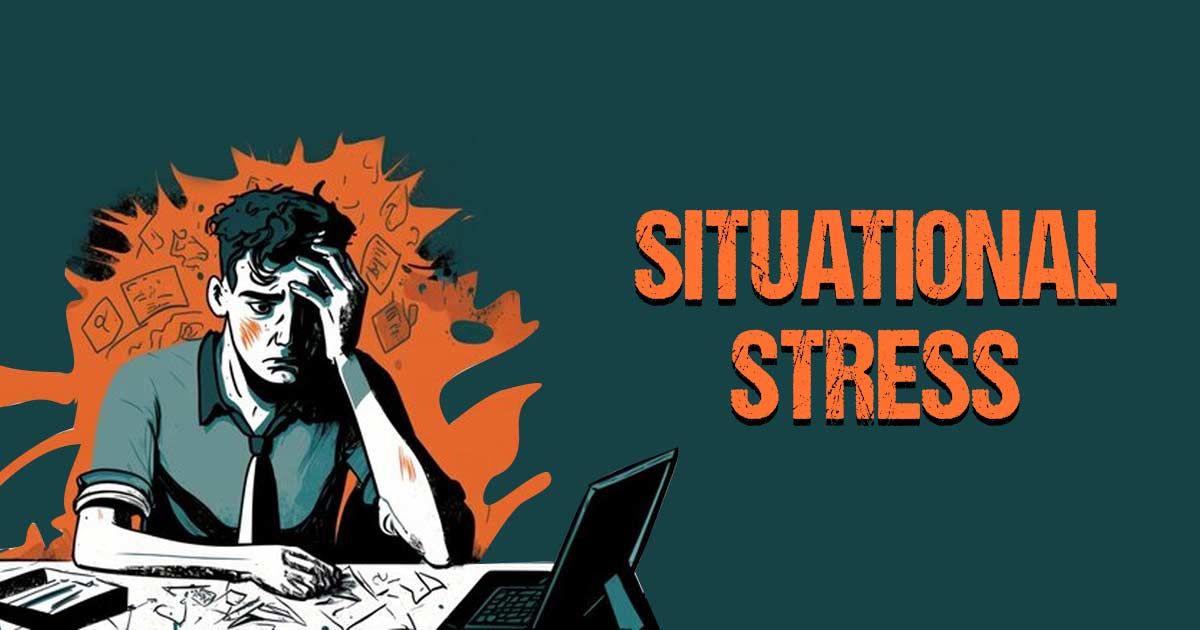Sleep meditation is a technique that uses meditation to promote relaxation and improve the quality of sleep. This guided sleep meditation practice helps individuals relax their minds and bodies, facilitating the ability to fall asleep easily and maintain sound sleep throughout the night.
What is Sleep Meditation?
Sleep meditation is a relaxation technique 1 Rusch, H. L., Rosario, M., Levison, L. M., Olivera, A., Livingston, W. S., Wu, T., & Gill, J. M. (2019). The effect of mindfulness meditation on sleep quality: a systematic review and meta-analysis of randomized controlled trials. Annals of the New York Academy of Sciences, 1445(1), 5–16. https://doi.org/10.1111/nyas.13996 that individuals can use to promote restful and restorative sleep. This practice involves lying in bed and focusing on the breath or engaging in visualization techniques to calm the mind and reduce feelings of stress and anxiety.
By alleviating the impact of worrying thoughts and bodily tension on one’s sleep, sleep meditation can help people learn how to shift their focus 2 Nagendra, R. P., Maruthai, N., & Kutty, B. M. (2012). Meditation and its regulatory role on sleep. Frontiers in neurology, 3, 54. https://doi.org/10.3389/fneur.2012.00054 and relax their bodies.
Studies indicate that insomnia affects around 30% 3 Bhaskar, S., Hemavathy, D., & Prasad, S. (2016). Prevalence of chronic insomnia in adult patients and its correlation with medical comorbidities. Journal of family medicine and primary care, 5(4), 780–784. https://doi.org/10.4103/2249-4863.201153 of adults in the short term and about 10% in the long term, making it a prevalent sleep disorder. Moreover, nearly one-third of adults usually sleep less than seven hours per night, which can have negative effects on their overall health and well-being.

Techniques of Sleep Meditation
Some best sleep meditation techniques include:
1. Guided Sleep Meditation
Guided sleep meditation involves listening to a recording or following along 4 Felix, M. M. D. S., Ferreira, M. B. G., Oliveira, L. F., Barichello, E., Pires, P. D. S., & Barbosa, M. H. (2018). Guided imagery relaxation therapy on preoperative anxiety: a randomized clinical trial. Revista latino-americana de enfermagem, 26, e3101. https://doi.org/10.1590/1518-8345.2850.3101 with a meditation teacher who leads an individual through a meditation practice. This can be helpful for individuals new to meditation or who find it difficult to quiet their minds on their own. It is one of the best sleep meditation techniques.
2. Visualization
Visualization involves imagining a peaceful and relaxing scene 5 Aigner, W., Kaiser, K., & Miksch, S. (2008). Visualization methods to support guideline-based care management. Studies in health technology and informatics, 139, 140–159. or scenario in an individual’s mind. For example, someone could imagine himself/herself lying on a beach or floating on a cloud. This technique can help to calm the mind and reduce stress.
3. Affirmation Meditation
Affirmations are positive statements 6 Cascio, C. N., O’Donnell, M. B., Tinney, F. J., Lieberman, M. D., Taylor, S. E., Strecher, V. J., & Falk, E. B. (2016). Self-affirmation activates brain systems associated with self-related processing and reward and is reinforced by future orientation. Social cognitive and affective neuroscience, 11(4), 621–629. https://doi.org/10.1093/scan/nsv136 that can help individuals to focus on and cultivate positive emotions and beliefs. Repeating affirmations such as “I am relaxed and at peace,” “I trust my body’s ability to rest and heal,” or “I release all worries and concerns,” can help individuals sleep better.
Different Settings for Practicing Sleep Meditation
Here are some of the example of different settings 7 Thomas, J. W., & Cohen, M. (2014). A methodological review of meditation research. Frontiers in psychiatry, 5, 74. https://doi.org/10.3389/fpsyt.2014.00074 where sleep meditation can be practiced:
- Many people prefer to practice sleep meditation in bed, as it can be a convenient and comfortable place to relax and prepare for sleep.
- A quiet room, free from distractions and noise, can help promote a deeper state of relaxation and concentration during sleep meditation.
- Some individuals prefer to practice sleep meditation in nature, such as in a garden or park, to connect with the environment.
- Many yoga studios and meditation centers offer classes specifically focused on sleep meditation, providing a supportive and calming environment for individuals to practice in.
- Psychologists, therapists, and counselors may incorporate sleep meditation in their clinics to help clients reduce anxiety and improve sleep.
Mental Health Benefits of Sleep Meditation
Sleep meditation can provide a wide range of benefits for mental health 8 Rusch, H. L., Rosario, M., Levison, L. M., Olivera, A., Livingston, W. S., Wu, T., & Gill, J. M. (2019). The effect of mindfulness meditation on sleep quality: a systematic review and meta-analysis of randomized controlled trials. Annals of the New York Academy of Sciences, 1445(1), 5–16. https://doi.org/10.1111/nyas.13996 functioning and overall well-being, such as:
- To promote better sleep by calming the mind and body and promoting relaxation.
- To enhance self-awareness by bringing attention to the present moment
- To promote a better understanding of an individual’s thoughts and emotions.
- To enhance focus and concentration by reducing distractions and improving cognitive function.
- To reduce daily life stress by helping an individual to cope better with stressors.
- Help night shift workers sleep better during the day and reduce the risk of health problems like cardiovascular disease.
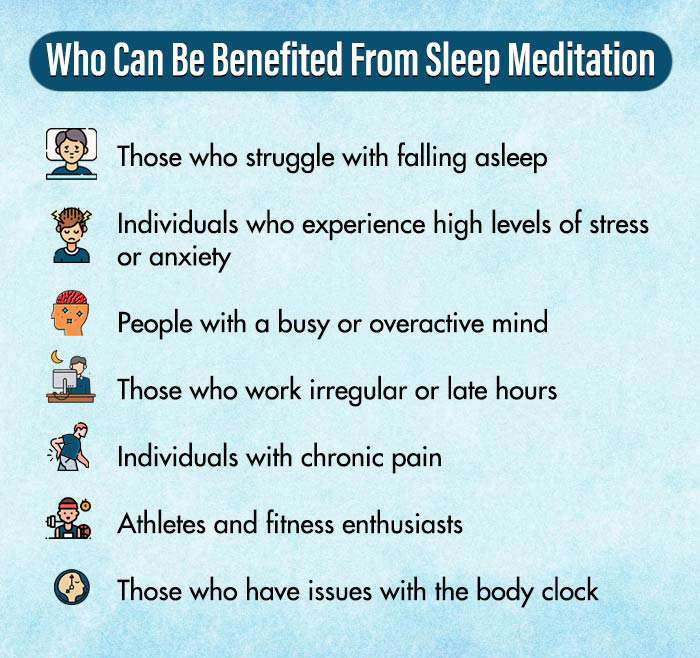
Effect of Sleep Meditation on Managing Mental Health Conditions
Deep sleep meditation can have a positive impact 9 Rusch, H. L., Rosario, M., Levison, L. M., Olivera, A., Livingston, W. S., Wu, T., & Gill, J. M. (2019). The effect of mindfulness meditation on sleep quality: a systematic review and meta-analysis of randomized controlled trials. Annals of the New York Academy of Sciences, 1445(1), 5–16. https://doi.org/10.1111/nyas.13996 on managing various mental health conditions, including:
1. Anxiety
Sleep meditation can be an effective tool for managing anxiety 10 Ferreira-Vorkapic, C., Borba-Pinheiro, C. J., Marchioro, M., & Santana, D. (2018). The Impact of Yoga Nidra and Seated Meditation on the Mental Health of College Professors. International journal of yoga, 11(3), 215–223. https://doi.org/10.4103/ijoy.IJOY_57_17 by promoting relaxation and reducing the physical symptoms of anxiety, such as rapid heartbeat and shallow breathing, palpitation, etc.
Read More About Anxiety Here
2. Depression
Deep sleep meditation can help individuals with depression 11 Parmentier, F. B. R., García-Toro, M., García-Campayo, J., Yañez, A. M., Andrés, P., & Gili, M. (2019). Mindfulness and Symptoms of Depression and Anxiety in the General Population: The Mediating Roles of Worry, Rumination, Reappraisal and Suppression. Frontiers in psychology, 10, 506. https://doi.org/10.3389/fpsyg.2019.00506 by reducing negative and self-critical thought patterns and feelings of lethargy, which make it difficult to engage in daily activities.
Read More About Depression Here
3. Attention Deficit Hyperactivity Disorder (ADHD)
The benefits of sleep meditation also includes reducing distractions, which eventually contributes to managing ADHD 12 Modesto-Lowe, V., Farahmand, P., Chaplin, M., & Sarro, L. (2015). Does mindfulness meditation improve attention in attention deficit hyperactivity disorder?. World journal of psychiatry, 5(4), 397–403. https://doi.org/10.5498/wjp.v5.i4.397 by improving focus, concentration, and cognitive function.
Read More About ADHD Here
4. Post-traumatic Stress Disorder (PTSD)
Individuals with PTSD often experience 13 Gallegos, A. M., Crean, H. F., Pigeon, W. R., & Heffner, K. L. (2017). Meditation and yoga for posttraumatic stress disorder: A meta-analytic review of randomized controlled trials. Clinical psychology review, 58, 115–124. https://doi.org/10.1016/j.cpr.2017.10.004 intrusive thoughts and memories related to their traumatic experiences. Sleep meditation can help to reduce the frequency and intensity of these intrusive thoughts by promoting relaxation and reducing negative thought patterns.
Read More About PTSD Here
5. Somatic Disorder
Somatic disorders are characterized by physical symptoms 14 Lakhan, S. E., & Schofield, K. L. (2013). Mindfulness-based therapies in the treatment of somatization disorders: a systematic review and meta-analysis. PloS one, 8(8), e71834. https://doi.org/10.1371/journal.pone.0071834 that are often associated with underlying stress and anxiety. Deep sleep meditation can have a positive effect on physical health conditions by reducing stress.
This can also lead to a reduction in physical symptoms associated with a variety of conditions, such as chronic pain, headaches, and gastrointestinal issues, among others.
How to Practice Sleep Meditation?
Consider the following tips to practice 15 Nagendra, R. P., Maruthai, N., & Kutty, B. M. (2012). Meditation and its regulatory role on sleep. Frontiers in neurology, 3, 54. https://doi.org/10.3389/fneur.2012.00054 the sleep meditation:
- Avoid using blue-light devices like cell phones and computers at least an hour before bedtime.
- Stick to a consistent sleep schedule by going to bed and waking up at the same time every day.
- Use blackout curtains or blinds to create a dark sleeping environment, especially if you need to rest during the day.
- Maintain a cooler room temperature for optimal sleep conditions.
- Minimize noise in your bedroom, and consider using white noise if needed to block out external sounds.
- Drink plenty of water throughout the day to stay hydrated and sleep better.
- Wear breathable cotton pajamas or sleepwear for comfort.
- End your day on a positive note by keeping a gratitude journal before bedtime.
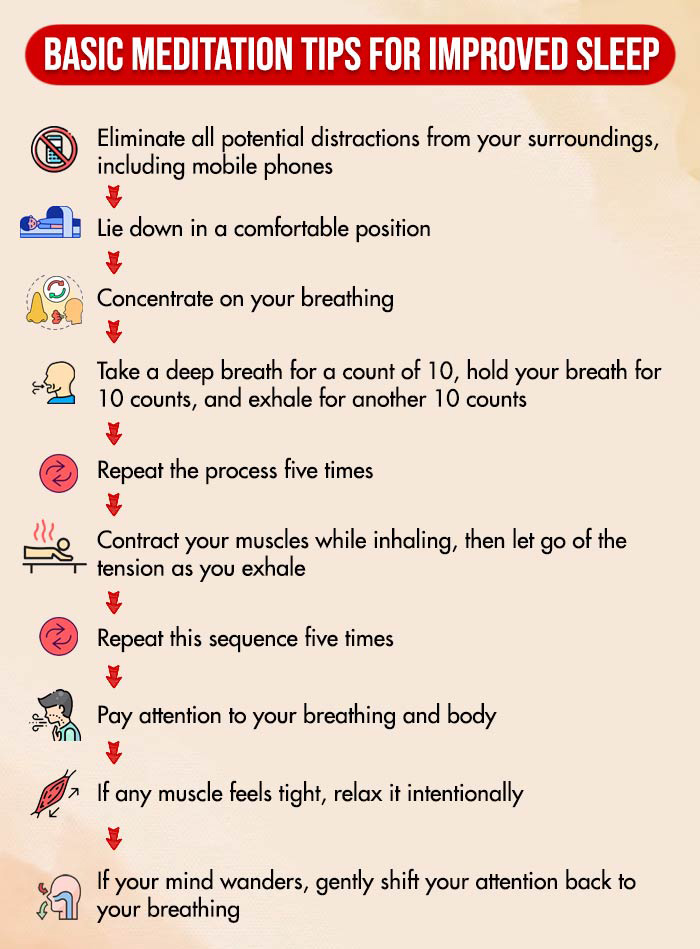
Takeaway
Sleep meditation is a beneficial practice that can help improve the quality of an individual’s sleep. By focusing on breathing and visualizations, individuals can quiet their minds and release any stress or tension, helping them relax and prepare for sleep. Making sleep meditation a regular part of the bedtime routine can lead to better sleep, leaving people feeling more rested and rejuvenated in the morning.
At A Glance
- Sleep meditation is a practice that involves using meditation techniques to prepare the mind and body for sleep.
- It can help individuals relax and release stress, improving sleep quality.
- Best sleep meditation techniques include guided imagery, visualization, and affirmation meditation.
- To practice sleep meditation, one should find a quiet and comfortable place to lie down and focus on guided imagery or visualization techniques.
- Other tips for improving sleep include setting a consistent sleep schedule, avoiding blue-light devices before bed, and maintaining a cool, dark sleeping environment.
- Incorporating sleep meditation into one’s bedtime routine can lead to better sleep and increased overall well-being.
Frequently Asked Questions (FAQs)
1. Does sleep meditation help with depression?
There is some evidence to suggest that sleep meditation may improve the quality and quantity of sleep, and helps to manage the symptoms of depression. However, it should not be used as the sole treatment for depression, and individuals with depression should seek professional treatment from a healthcare provider.
2. Does sleep meditation help with anxiety?
Sleep meditation can be helpful in managing anxiety. Practicing meditation before bedtime can help to calm the mind, reduce racing thoughts, and relax the body.
3. Does sleep meditation really work?
Sleep meditation has been shown to be an effective tool for improving the quality and quantity of sleep for some individuals. By focusing on the breath or visualization techniques, sleep meditation can help to calm the mind and reduce feelings that interfere with sleep, such as- stress and anxiety.

